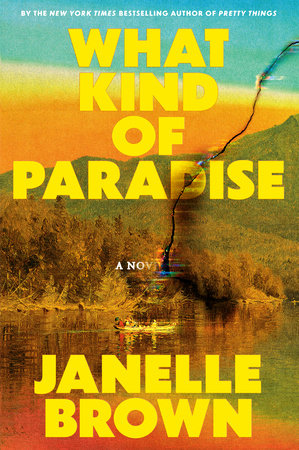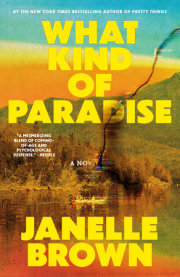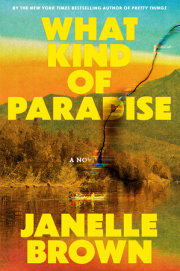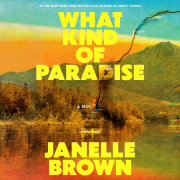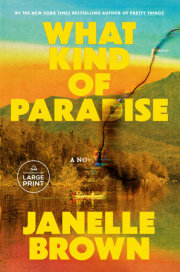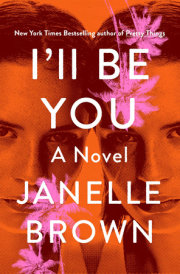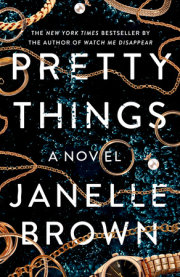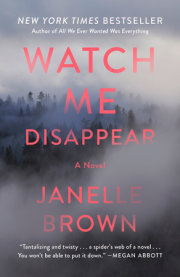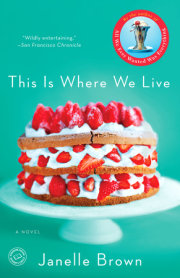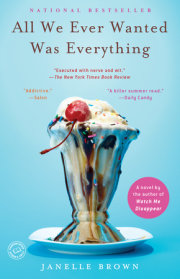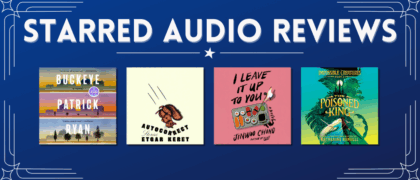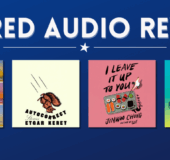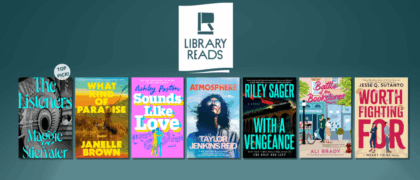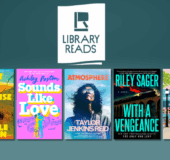1.The first thing that you have to understand is that my father was my entire world. It had been that way since I was four and my mother died, leaving us alone together. Not alone in the typical bereaved-family sense, but truly alone, as in, just us two living out in the wilderness together. As a child, I had no understanding that our lives were not normal—it was simply the way things were. Our cabin, our forest, our woodstove surrounded by our towering piles of books and newspapers, and our potatoes that we dug out of our vegetable garden and roasted in the coals. My father, his long brown hair shot with gray, the side of his hand permanently smudged with ink, his worn-soft shirts with holes right where the fabric rubbed against his belt. His hugs, which smelled of smoke and the mint sprigs that he chewed.
There were so many things that were said about my father later, so many portraits that weren’t at all accurate; but one thing that everyone felt the need to acknowledge was that he was very intelligent. A mind as sharp and bright and piercing as a nail. Think, Mensa-level genius.
Growing up, I sometimes thought I could hear his mind fizzing and popping, dendrites of connection whirring in his brain, an electric buzz coming off him that was almost audible in its intensity. I felt slow around him: a dim bulb, compared to his incandescent filaments. I read the books he put before me, tried to formulate arguments that would impress him; and even though he would nod and smile as I stumbled my way through Nietzsche or Goethe or Baudrillard, I always feared that I was letting him down.
He never let me forget that he was an extraordinary man, either. “They didn’t know what to do with me at Harvard. Got three degrees in four years—engineering and mathematics and philosophy—and I wanted to get one more in history, but it was money I didn’t have.” “I quit a high-profile job after I exposed the underlying flaw in their thinking and they didn’t want to listen.” “I could have gotten sixteen patents for inventions, but I walked away from all of them because I didn’t want to deal with the government bureaucracy of it all.”
The subtext, of course, was that there were so many things he could have done, but he chose me over all of them. He chose me, and preserving my future, over his own blinding success. He’d given all that up to move us to the woods, so he could raise me in an Edenic paradise. That was how much he loved me.
How could I not trust that?
So yes, I grew up fully aware that my father was a brilliant man, whose expertise I should never ever ever question.
Did I believe that he was a good man? That’s another question entirely.
He wasn’t without goodness. When I think of him now—that is, when I try to remember the father I revered, not the man from the news—I often find myself reaching back to a March day when I was fourteen. My father shook me awake at dawn and told me that we were out of food and the snowstorms had made the roads impassable, so we were going to go hunt a deer. It wasn’t hunting season, but that didn’t bother my father a bit. He wasn’t about to let the government tell him how to conduct his business on his land; and though the forest wasn’t technically our land (our property was a small patch of woods-adjacent scrubland), my father certainly knew it better than anyone else.
And so off we went at dawn, my father’s loaded rifle tossed over his shoulder, both of us bundled up in old Army Navy parkas. Snow started falling as we trudged through the drifts. I remember trying to fit my feet into my father’s footsteps as we walked single file through the trees; and the effort it took me to fit my short girl’s stride into his long man’s one. Our breath formed clouds in the air, froze ice crystals into my scarf. I could see my father’s head turning right and left, looking for signs. I kept following his gaze into the depths of the trees, and saw nothing.
And then he stopped so fast that I almost bumped into him. He pointed one finger up at the sky, signaling me to pay attention, and then he slowly lifted the Remington and fitted it to his shoulder. There in the path, less than twenty feet in front of us, was a magnificent buck, with at least twelve points on his rack. The deer wasn’t a young one; but he wasn’t old yet, either. His flank was crossed with violent-looking scars; his haunches quivered with muscle; the fur under his muzzle was matted with icicles. He looked like a creature that had just survived an epic quest from a Jules Verne story.
He stared at us. We stared at him. No one moved.
I braced myself, waiting for the rifle shot. But it didn’t come. Instead, my father slowly let the rifle slip in his hands until it was pointed at the ground. And then I heard an unexpected sound: the soft huff of my father’s tears.
My father never cried.
“Go on,” he said to the deer; and his voice in the silent forest was shockingly loud. “Better you than us.”
“Dad!” I objected in a whisper, already anticipating a familiar knot of hunger. My father hunted only once or twice a year, and only on these late-winter days when our food stores were empty and the roads were still unplowed. Without venison, I knew that all we would have to eat was oatmeal mush and canned beans and the last of the frozen potatoes in our storage shed.
My father ignored me. So did the buck. They stared at each other, and something seemed to pass between them, two battle-scarred veterans of life. The needles of the pine trees, swaying in the wind, seemed to be whispering secret messages to them both. Time slowed and stopped, as if the falling snow had frozen them both into statues. Half hidden behind my father, I was part of the moment and yet I knew I wasn’t a part of it at all.
And then within a single breath the buck leapt away into the brush and was gone.
My father turned to me, his face glistening with frozen tears. “Every living thing on this planet, including human beings, are products of nature, squirrel,” he said. “Humans may believe that we are in charge, but we shouldn’t be, because we can’t be trusted with that power. We need to acknowledge the things that are still wild, the things that have survived us. We need to remember that this”—he gestured at the trees around us, the falling snow, the vanished deer—“is what we are supposed to be part of. Instead, we’ve manufactured these precarious societies, ruining the earth with our so-called technological advances. Our guns and our biological weapons, television sets and computers. Making ourselves obsolete in the process, even.” He wiped away the last of the tears. “Left alone, nature takes care of itself. But all we humans do is destroy. That’s where this all goes eventually, you see? Apocalypse. So there was no way I was going to kill that deer. Not today.”
My father had hunted deer before. I failed to understand why this day, this particular deer had affected him so profoundly; but my father’s impulses were an enigma I often failed to understand. “Come on, Dad. It’s just one deer, not the end of the world,” I complained. “And I’m hungry.”
“You’re not listening, Jane,” he said sharply.
My greatest fear was disappointing my father. So I looked, really looked, at the trail that the deer had left in the snow, and at the trees holding us close; and I felt my eyes welling up with tears, too—at the beauty of it all, how much would be lost if we destroyed it. And I believed him, even when my stomach twisted itself into a tiny little walnut of hunger later that day. I believed him, even as we ate oatmeal at every meal for the next week, until the plows finally came through and the roads were passable again. Nor did I stop to consider the hypocrisy when my father went into his office after dinner and turned on his TV, tuned it to the news, and began to write. Because in my heart I understood that my father was always right, and my complaints were a sign of my privileged position within a flawed modern society. That if we killed one deer, we might as well kill them all; and then where would we be? Once we lost our respect for nature, the world was on its way to an end.
My father, I told myself, was a pure man, a bona fide modern Thoreau, who could see things in a way I never would.
Three years later, when I published his manifesto, I would recognize many of the same ideas that he shared with me that day—the same kernel of truth, but spun out until it was a thick, impenetrable web, encompassing all human existence. And even though the madness inside him had grown evident by then—evident to anyone who had a TV or a newspaper subscription or an internet connection—I could also still remember that moment in the forest and see the truth in it. The moment where he made me understand why he wept for a deer. And I was able to love him for that, despite everything he’d done to me.
Copyright © 2025 by Janelle Brown. All rights reserved. No part of this excerpt may be reproduced or reprinted without permission in writing from the publisher.

